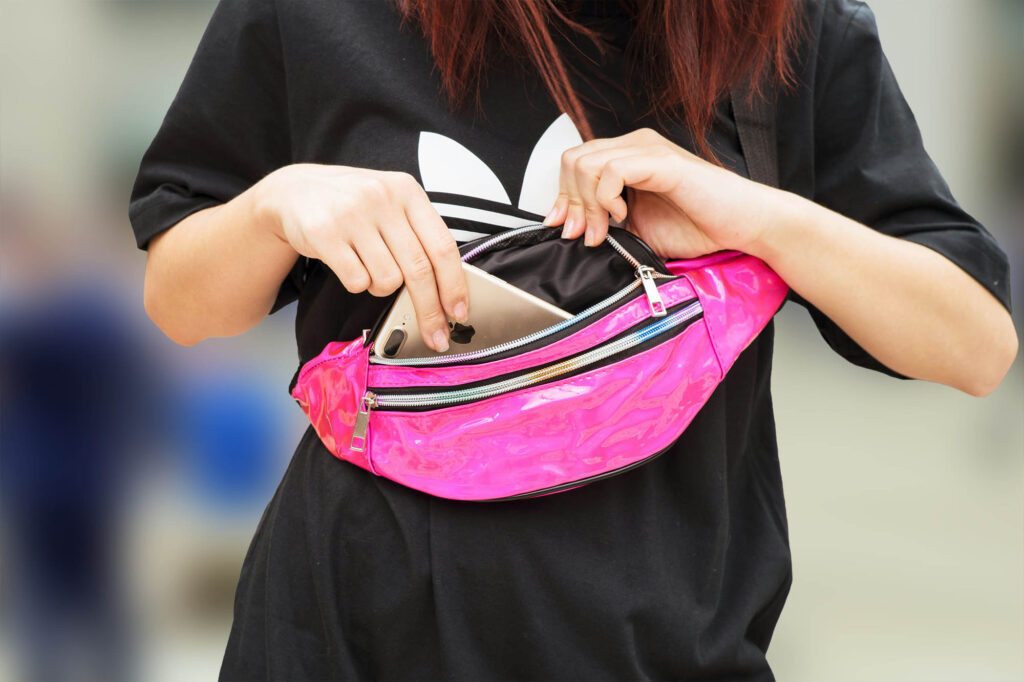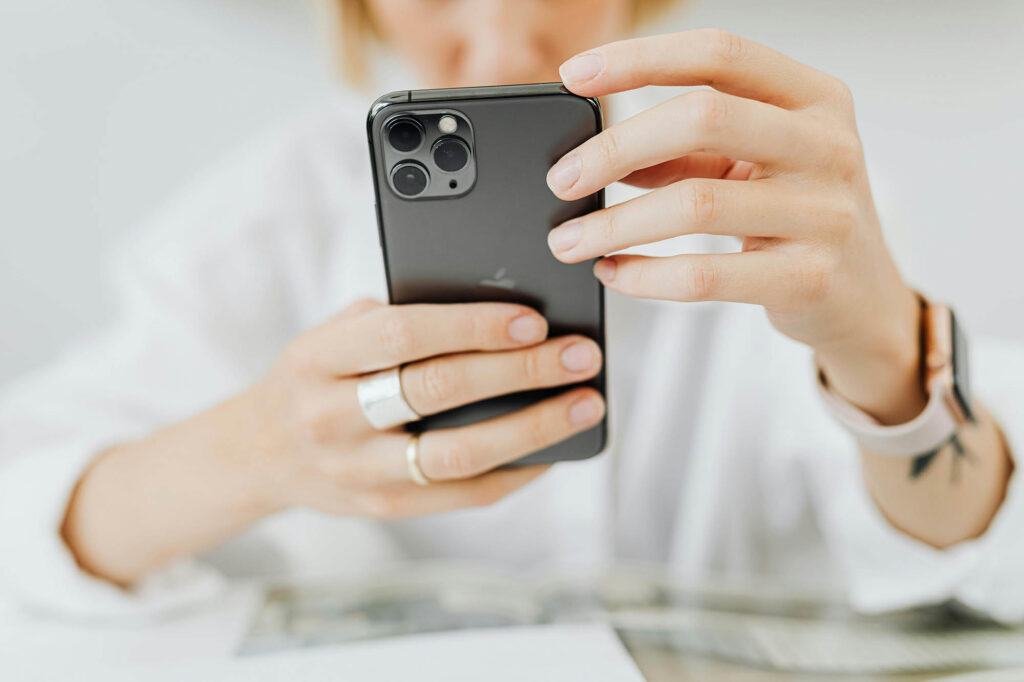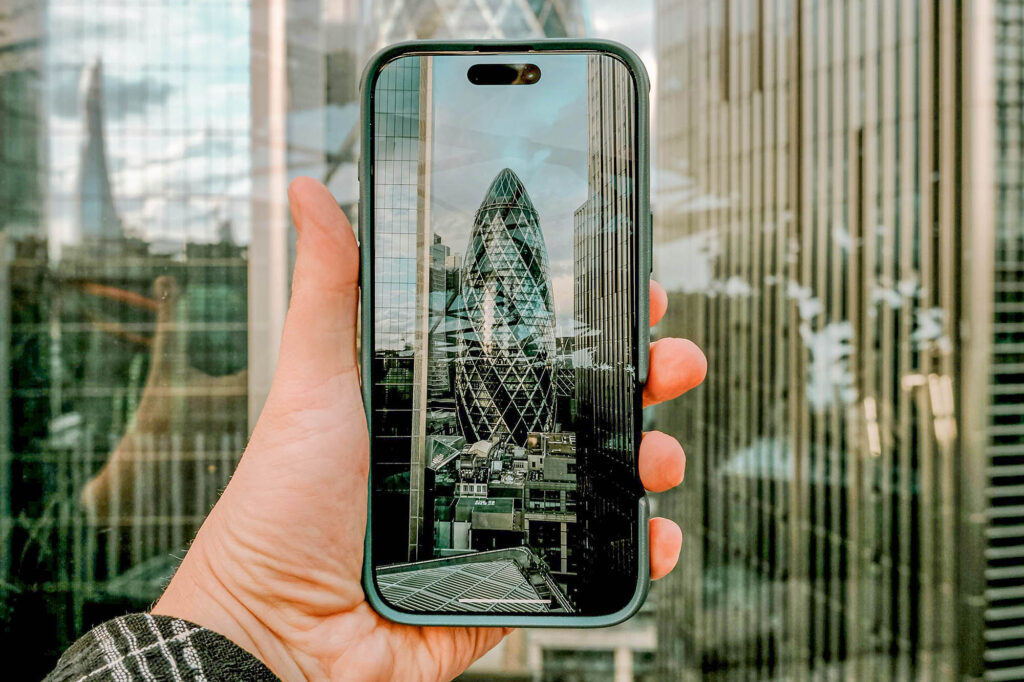Many people worry about safety when visiting London, particularly when visiting with children. It is natural to worry about safety when in a new and unfamiliar place, particularly when family are involved. Visiting London can, in particular, be daunting if your family is not used to dealing with big cities. On the whole, London is very safe. However, as with all big cities, tourists are an easy target for opportunistic petty criminals, and recently phone theft (particularly in the form of phone snatching) has become a more common occurrence. In this post, we provide you with our top tips on how to avoid phone theft in London.
How does phone theft happen?
Phone theft typically occurs in one of two ways:
- phone snatching – phone snatching involves a quick, forceful grab—often by perpetrators on foot, bikes, or scooters—who target distracted pedestrians using their devices in public, especially near transit stops or crowded streets. The thief strikes suddenly (usually from behind), snatching the phone from the victim’s hand before quickly escaping. This video shows a number of examples of phone snatching; and
- pickpocketing – in contrast to phone snatching, pickpocketing, relies on stealth rather than speed, with thieves discreetly removing phones from pockets, purses, or bags while victims are distracted, often in crowded environments like public transportation, concerts, or busy markets. These thieves frequently employ distraction techniques – such as bumping into victims, creating commotion, or working with accomplices – to divert attention while they extract the device without detection.
How common is phone theft in London?
Sometimes reading the internet might lead you to believe that it’s almost inevitable that you will have your phone stolen or that such things happen on a regular basis. That’s the nature of the internet, people only write about the really good or really bad, so if they’ve had their phone stolen, they’re likely to go on the internet to warn others. The reality is that most Londoners have probably never witnessed a phone being stolen. Unfortunately though, it does happen often enough that tourists and visitors to London should be aware of the risks and be vigilant.
Top tips on how to avoid phone theft in London
When not in use, keep your phone securely zipped away in a place where it is difficult for anyone else to access it

Instead of carrying your phone or putting it in an easily accessible pocket (like the back pocket in jeans or a jacket pocket that could be dipped into), opt for cross-body bags worn in front of your body rather than backpacks, as this positioning allows you to maintain visual contact with your belongings and creates a physical barrier against opportunistic thieves.
Look out for cross body bags that allow you to wear the bag close to you and on the front of your body. The Round Mini Shoulder Bags from Uniqlo are ideal, they are relatively cheap, don’t scream ‘tourist’, come in a range of colours and are big enough to fit not just a phone but also a small bottle of water etc. They leave you free then to wear a backpack with all your other non-valuable essentials for kids (snacks, coat etc).
Alternatively, utilise secure, zipped inner pockets. Many jackets now come with hidden interior pockets.
This approach not only protects against snatching incidents but also foils pickpockets who often work crowded areas looking for visible outlines of phones or devices partially exposed in outer pockets.
Avoid the need to get your phone out
Remember that thieves are typically scanning for easy targets; by keeping your phone completely out of sight when not actively using it, you significantly reduce your risk profile and become a much less appealing mark.
While there are legitimate times when you need your phone, many situations allow for alternatives
- When navigating unfamiliar city streets, use a single earbud to receive audio directions from your map app rather than constantly checking your screen.
- For public transportation, keep a dedicated transit card (like an Oyster card in London) or contactless bank card readily accessible in a secure pocket for quick tapping at stations.
- Before heading out, check essential information like addresses, opening hours, or meeting points so you won’t need to retrieve your phone in crowded areas.
These small adjustments maintain your situational awareness while keeping valuable devices safely concealed from opportunistic thieves.
Avoid using your phone in places where it can easily be taken
Avoid using your phone in places where it can easily be taken, as these locations create perfect opportunities for thieves to strike with minimal resistance.
Be particularly cautious near pavement edges, bus stops, or street corners where thieves on mopeds or bicycles can rapidly approach, snatch your device, and speed away before you can react.
Also be alert when sitting near the doors on public transport, particularly during crowded rush hours, as these spots are prime targets for opportunistic thieves who can grab your phone and immediately exit the vehicle as the doors close, preventing any pursuit.
If you absolutely must check your phone in public, position yourself with your back against a wall or, better yet, step into a shop entrance or quiet corner facing away from foot traffic. When on buses or trains, consider sitting upstairs or in the middle of carriages rather than by exits, and maintain a firm two-handed grip on your device at all times. Make it a habit to look up from your phone every few minutes to scan your surroundings, as thieves specifically target those absorbed in their devices.
Remember that thieves are constantly scanning for distracted individuals, so your awareness and strategic positioning can be your strongest defence against becoming a victim.
Make your phone harder to take

You could make your phone harder to take by using measures that create barriers between thieves and your device. Consider using phone accessories like lanyards, wrist straps, or cross-body phone cases that physically tether your phone to your body—forcing a would-be thief to either abandon the attempt or risk a conspicuous struggle. Pop sockets or ring grips can not only provide better handling but also require thieves to apply more force to break your grip.
Practice holding your phone in a secure manner, such as with a two-handed ‘death grip’ where your non-dominant hand grips the phone on both sides, while your dominant hand is placed so either your index finger or middle finger has a grip on the top of your phone, leaving your thumb and/or index finger available to scroll and tap. This makes it substantially more difficult for someone to wrench your phone away with a quick grab.
You could even rehearse theft scenarios with a partner who attempts to snatch your phone while walking past you from behind. This could help you to understand how to best hold your phone to avoid it being easily snatchable.
Remember that most phone thieves rely on the element of surprise and minimal resistance, so any added difficulty you create dramatically increases the likelihood they’ll move on to an easier target rather than risk a prolonged confrontation with you.
Don’t get distracted, stay vigilant!
When navigating London’s bustling streets, stay vigilant! Be cautious of artificial crowding or strangers who bump into you unnecessarily, as these are classic diversion tactics.
Remain particularly alert in high-risk areas like Oxford Street, Covent Garden Camden Town, and popular tourist attractions where thieves may actively target visitors. It can be very easy to get absorbed in looking at something or watching a street performer and to forget about your valuables.
Take care on public transportation, especially during crowded rush hours when pickpockets thrive in the chaos and close contact.
Make your children aware of the dangers if they have their own phones
If your children are old enough to have their own phones, make them aware of the dangers by having an open, age-appropriate conversation about device security. Explain that thieves specifically target young people who may appear less vigilant or experienced with valuable devices.
Help them understand that being alert to their surroundings isn’t just about protecting a device—it’s about personal safety, and that no phone is worth risking their wellbeing should someone attempt to take it by force.
If they are teenagers and you are giving them a degree of freedom in London to explore, make sure that you have back-up options as to where to meet or how they will get in touch with you, if the worst happens and their phone is stolen.
Things you can do before you visit London in order to mitigate the impact if your phone is stolen

Although it is not possible to guarantee that your phone will not get stolen (even if you follow all of the tips above), there are steps that you can take before you leave home that will mitigate the impact on you if your phone is stolen:
- Record your phone’s IMEI number (dial *#06# to view it) and store it separately from your phone – this information will be useful in the event that your phone is stolen (or lost)
- Enable remote tracking features like “Find My iPhone” (iOS) or “Find My Device” (Android) and any remote locking features available – this may help police in the event of a report, although it sadly does not guarantee action
- Set up secure screen locks (biometric plus strong PIN/password) – this will help ensure that, if stolen, the contents of your phone are as safe as possible
- Back up all important data and photos to the cloud or separate storage – one of the most devastating things to lose from a phone are photos you have taken. Therefore, make sure that before you visit, you have backed-up all of your data.
- Purchase travel insurance that specifically covers phone theft or loss – this will help ensure that you are reimbursed for a replacement
- Store emergency contact information somewhere other than just your phone – this is particularly important if your phone is stolen and you are not with the rest of your party or if there are people you will need to contact
- Set up two-factor authentication that doesn’t rely solely on your phone number – if you can, try and avoid having your phone number the the only way of getting access into important accounts, like online banking
- Don’t keep bank cards or ID documents like a driving licence in your phone case – if your phone is stolen you don’t want to also lose your bank card
- Ensure that you have an alternative means of accessing things like electronic tickets – ideally more than one adult in the group should have tickets stored on their phones or have a print-out as a backup.
Have you got advice on keeping your phone safe from being stolen? Let other readers know in the comments!


